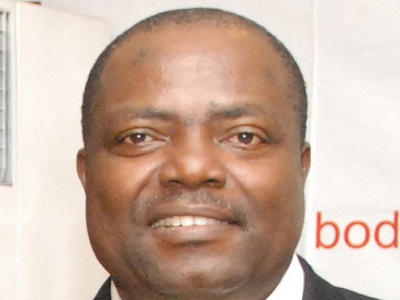Telecom
Telecom Stakeholders Back Lawful Phone Interception

Telecommunications stakeholders have expressed support for federal government phone interception policy, an initiative to empower relevant security agencies in the country to intercept communications prejudicial to national security for public interest.
Rising from the just concluded Telecom Executives and Regulator’s forum organized by Association of Telecommunications Companies of Nigeria (ATCON) in Lagos, the stakeholders noted that lawful interception of individuals’ phones is desirable provided there is a law to ensure that government does not employ executive fiat to trample on the rights of individuals.
According to a communique issued at the end of their deliberations, the forum stated that whereas NCC is empowered to regulate lawful interception, the existing laws have hurdles that could impede the interception process, adding that unlawful interception requires some sanctions because it is criminal.
“There needs to be an act from the National Assembly to describe the extent to which security agents can go for lawful interception and what is unlawful and authorization of warrant for lawful interception should not be limited to judges because it might impede urgency,” the statement added.
The forum dispelled the fear that government subsidy to newly licensed infrastructure providers could negate liberalization and competition in the industry, thereby discouraging private investors as the regulator assures that government has no equity in the infrastructure service providers but is simply providing incentives to fast track the deployment of services in Nigeria.
On quality of service, stakeholders at the forum observed that besides the usual reasons often advanced by operators for poor quality of service, inadequate network capacity accounts for a high percentage of issues of quality of service.
“Quality of mobile devices used by subscribers can also tamper with quality of service so we need to fight against fake phones in Nigeria as N730billion is lost annually due to poor quality of service.”
It was however observed that Mobile Number Portability scheme seems not to be very effective in Nigeria because most subscribers already have two, three or more mobile phones.
“Multi-SIM phones also hinder the success of porting because it encourages subscribers to use more than one SIM card and this defeats the porting phenomenon. More so, porting has made the operators to be more customer-friendly and operators must agree amongst themselves not to port postpaid subscribers owing their source networks.”
Telecom
MTN Guns for $2.76bn IHS Towers Buyout in African Telecom Power Grab

MTN Group, the continent’s telecom behemoth, has plunged into advanced negotiations to acquire the outstanding 75 percent stake in IHS Towers for a staggering $2.76 billion, a seismic move that would hand Africa’s largest mobile operator full reins over one of the world’s premier independent tower companies and redefine infrastructure control across emerging markets.

MTN
The proposed transaction, pegged to IHS’s latest New York Stock Exchange closing price where it trades alongside a Frankfurt listing, builds on MTN’s existing 25 percent holding forged in a landmark 2014 deal that saw the operator offload most tower assets to IHS in exchange for cash and long-term leases.
Sources close to the talks confirm discussions remain fluid with no binding agreement yet inked, and both sides caution that negotiations could shift or stall entirely—MTN has signalled readiness to pivot to alternative value-unlocking strategies for its stake if a full buyout eludes grasp.
Strategically, the power play catapults MTN toward vertical integration in a sector where operators increasingly crave direct grip on passive infrastructure to slash lease bills, streamline upgrades, and rocket-roll 4G/5G amid Africa’s insatiable data deluge.
IHS Towers, MTN’s anchor tenant across swathes of Africa with tens of thousands of masts from Nigeria’s 13,500 tenancies—renewed amid naira-dollar tussles—to South Africa and beyond the Middle East into Latin America, represents a golden infrastructure war chest primed for the operator’s 20-nation blitz.
The saga traces to 2014’s seismic sale that freed MTN capital for spectrum wars while birthing enduring lease pacts, now ripe for reversal as governance dust-ups over shareholder nominations and agendas underscore the buyout’s boardroom chess.
Market tremors rippled through IHS shares post-leak, underscoring the $2.76 billion tag’s gravity as MTN eyes cost efficiencies, network agility, and expansion muscle in oil-volatile economies where tower mastery spells survival.
Should the ink dry, MTN vaults to ownership of a colossus fuelling digital bridges from Lagos megacities to rural frontiers, slashing third-party dependence while supercharging investments in fibre-deep data dreams and 5G horizons.
Analysts buzz that the mega-deal heralds telecom consolidation waves, with operators reclaiming tower turf to fortify against rivals and unlock synergies in a landscape where infrastructure crowns kings.
Neither MTN nor IHS commented officially by press time, but the high-stakes huddle spotlights Africa’s telecom arena hurtling toward an era where owning the poles decides who dominates the digital skies.
Telecom
NCC, NSCDC Warn Construction Firms Against Damaging Fibre Optic Cables

Nigerian Communications Commission (NCC) and the Nigeria Security and Civil Defence Corps (NSCDC) have issued a forceful warning to road construction companies, government contractors and civil engineering firms across the country, declaring that the era of unchecked fibre-optic cable damage during excavation works is over, with perpetrators now facing criminal prosecution.

NCC, NSCDC
The two agencies, in a joint statement, highlighted the alarming surge in avoidable fibre cuts caused by negligence, poor planning or outright disregard for infrastructure protection protocols, stressing that such incidents severely disrupt Nigeria’s digital backbone and will attract the full weight of the law moving forward.
They described fibre optic cables as indispensable national assets that fuel the nation’s burgeoning digital economy, ensuring uninterrupted communication services, powering emergency response systems, linking businesses for commerce and trade, and enabling seamless government operations at all levels.
Any destruction of these cables, whether through careless excavation, lack of coordination with telecom operators or deliberate sabotage, directly endangers national security, undermines economic stability and compromises public safety, the organisations warned, painting a grim picture of the cascading effects of even brief network outages on hospitals, financial institutions and security agencies nationwide.
Under the Designation and Protection of Critical National Information Infrastructure (CNII) Order 2024, telecommunication fibre infrastructure has been officially classified as Critical National Information Infrastructure, making any damage from unauthorised digging, construction activities or failure to collaborate with relevant authorities a clear-cut criminal offence punishable under existing statutes.
Individuals, private construction companies and even government contractors found culpable will face immediate prosecution and stiff sanctions as stipulated in the Cybercrimes (Prohibition, Prevention, etc.) Act 2015, with the agencies vowing zero tolerance for what they termed economic sabotage disguised as construction mishaps.
“Future damage to fibre optic infrastructure caused by excavation, road construction or any civil engineering activity conducted without due consultation or collaboration with network operators and relevant regulators will attract strict legal consequences,” the NCC and NSCDC declared categorically, underscoring their resolve to safeguard this vital ecosystem through heightened enforcement.
To forestall further incidents, the agencies implored federal, state and local government bodies, road construction firms, utility service providers and private property developers to adopt proactive measures including thorough pre-construction verification of underground fibre routes using approved mapping tools, early collaboration with the NCC, telecom operators and NSCDC both before and during project execution, strict adherence to national guidelines on excavation procedures and right-of-way management, and prompt reporting of any accidental damage to facilitate swift repairs and minimise downtime.
They emphasised that these steps represent the bare minimum for compliance in an era where digital connectivity is non-negotiable for Nigeria’s progress.
Members of the public have also been enlisted in this protection drive, with calls to report suspected sabotage, vandalism or unintended damage to fibre optic installations at the nearest NSCDC office, via email to [email protected] or [email protected], or by dialling the toll-free line 622 for immediate action.
This collaborative approach, the agencies believe, will not only deter would-be offenders but also foster a culture of accountability among all stakeholders handling earth-moving equipment or infrastructure projects in a country racing towards full digital transformation.
Telecom
Google Calls on Africa’s AI Trailblazers for 10th Startup Accelerator Cohort

Google has flung open applications for its landmark 10th cohort of the Startups Accelerator Africa, doubling down on nearly a decade of continent-wide tech propulsion by targeting Series A pioneers wielding AI and machine learning for scientific and societal moonshots.

The 12-week “AI First” hybrid bootcamp, kicking off April 2026, equips Africa-based or Africa-centric innovators with Google’s AI arsenal, expert mentorship, technical firepower, and investor matchmaking to catapult health and deep-tech ventures into orbit—deadline March 18 at g.co/acceleratorafrica.
“Africa’s tech landscape is seeing a vibrant shift toward deep-tech innovation,” proclaimed Folarin Aiyegbusi, Head of Startup Ecosystem, Africa. “For Class 10, we are focusing on the potential of AI to drive health and societal benefits, providing the infrastructure and expertise to turn these startups into the research labs of the continent.”
Since 2018, the accelerator has turbocharged 180+ startups across 17 nations, unlocking $350 million in funding and 3,700 direct jobs, cementing Google’s role as Africa’s AI innovation forge amid a deluge of homegrown problem-solvers.
Equity-free and hybrid-powered, Class 10 promises Google’s product credits, strategic war rooms, and global networks to forge the next wave of African AI trailblazers reshaping everything from disease detection to climate resilience.

 News2 days ago
News2 days agoNew Study Reveals How Moniepoint Powers Nigeria’s Downstream Oil Sector with Same-Day Settlements and Working Capital Boost

 E-Business3 days ago
E-Business3 days agoOADC Lagos Reinforces Commitment to Local Data Hosting and Digital Transformation @ NDPC’s National Privacy Week Summit

 Telecom3 days ago
Telecom3 days agoMTN Powers 6,000 Young SMEs with Digital Skills in Economic Backbone Boost

 News3 days ago
News3 days agoFG Mandates Shared Funding for N1.98trn Electricity Subsidy

 News3 days ago
News3 days agoSpain Bars Under-16s from Social Media in Digital Safety Crackdown

 Telecom3 days ago
Telecom3 days agoOnafriq, PAPSS Launch Wallet-Based Payments Pilot from Nigeria to Ghana

 E-Financial3 days ago
E-Financial3 days agoFG Signs MoU with ICAN, CIBN, Others to Train 10m Nigerians in Financial Literacy

 General News3 days ago
General News3 days agoCorporate Comms in the Age of Crypto: Why Nigeria’s Digital Finance Future Depends on Trust
























